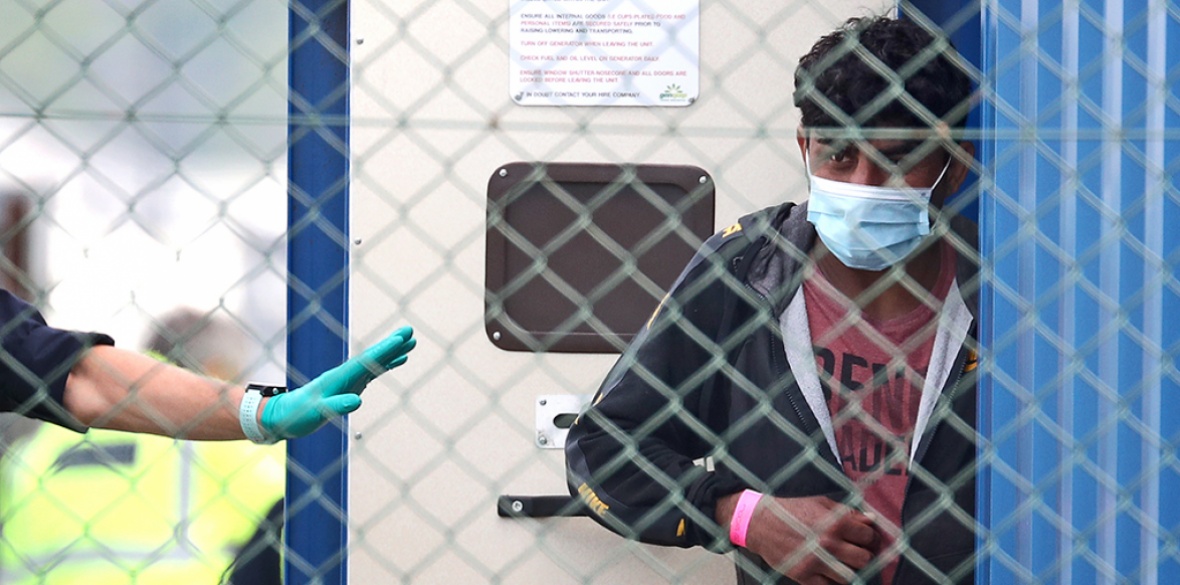This is the last article you can read this month
You can read more article this month
You can read more articles this month
Sorry your limit is up for this month
Reset on:
Please help support the Morning Star by subscribing here
THE Covid-19 crisis is, of course, unprecedented. Yet it is also shining a brutal light on existing racial and class inequalities, which have deepened after half a century of brutal, unrestrained neoliberal policies.
As a black woman representing the exceptionally diverse constituency of Leicester East, it has been extremely concerning to see the disproportionate impact of the coronavirus upon African, Asian and minority ethnic communities.
Analysis from the Intensive Care National Audit and Research Centre found that, of over 4,000 critically ill coronavirus patients, 34 per cent were from BAME backgrounds — over double what would be expected based on population demographics.
These figures reflect the severe racial disparities in our economy. The Resolution Foundation think tank estimate that Black, Indian, Pakistani and Bangladeshi employees experience an annual pay penalty of £3.2 billion.
This means that African, Asian and minority ethnic communities are more likely to fall through the cracks in the government’s financial support and are therefore more likely to be forced to work in unsafe conditions.
The heightened suffering of African, Asian and minority ethnic communities is, tragically, a global trend.
In the United States, almost one-third of infections nationwide have affected African-Americans, according to data from the Centres for Disease Control.
Likewise, nearly one-third of those who have died across the country are African-American, roughly double the proportion of the US population.
On International Workers’ Memorial Day, when I join the minute’s silence for all workers and trade unionists who have lost their lives, I will be especially thinking of all the NHS professionals, carers and staff who have tragically died on the front lines of the coronavirus crisis.
NHS staff are at considerable risk, in large part due to the lack of staff testing and shortages of personal protective equipment.
In a study of 106 healthcare workers who have tragically died from the virus, the Health Service Journal found that BAME individuals accounted for 95 per cent of medical staff deaths despite making up 44 per cent of the NHS medical workforce.
The same HSJ study found that 66 per cent of NHS workers who have died were not born in the UK.
Our health service simply would not function without the sacrifices of people from across the world.
As anti-racists, it is vital that we use this moment to push for a permanent extension of migrant rights.
That means an end to the hostile environment, shutting detention centres and granting indefinite leave to remain to all NHS workers and their families.
Many have tried to dismiss the imbalance in deaths as being explained by cultural differences.
Yet as socialists, we know that racism and discrimination are deeply ingrained in the social, political and economic structures of our global economic system.
The scourge of institutional racism results in unequal access to quality education, healthy food, liveable wages and affordable housing — which are the foundations of health and wellbeing.
This is the context in which the coronavirus crisis is operating. The uneven deaths reflect a global economic system which has been built upon racialised extraction and subordination.
Existing racial and class inequalities, coupled with inadequate government support, mean that migrants and African, Asian and minority ethnic communities are at greater risk during this crisis.
I welcome that, after pressure from Labour MPs, the government has launched an investigation into the disproportionate impact of coronavirus on BAME communities.
Yet the Conservatives are responsible for deepening the racial and class inequalities that exist in our society.
Last year a special rapporteur for the UN’s human rights council reported on the state of discrimination in Britain.
Its findings were “analogously grim,” as it reported that “austerity measures in the United Kingdom are reinforcing racial subordination.”
According to the findings of the most recent Race Disparity Audit, black and Asian children are twice as likely to be in persistent poverty and live in substandard accommodation as white British children.
The Runnymede Trust also found that the poorest black and Asian households have lost out the most under austerity, to the tune of £8,400 to £11,700 per year.
This might seem like small change to our government of the super-rich, but it is the world of difference for poorer families.
As well as being a day of remembrance, Workers’ Memorial Day is also a celebration of everything that the Labour and trade union movement has fought for and won.
From fairer pay, the eight-hour day to weekends, everything that makes the lives of workers tolerable has been won by generations of struggle.
I will be reflecting on how much of these achievements have been cut away during the failed neoliberal project of the last half century.
It is hard not to wonder how many of the workers that have died due to exposure from the coronavirus could have been saved if recent governments had focused on building up protections for workers rather than transferring the wealth they create to the super-rich.
After this crisis, we can no longer live in a society defined by extreme racial and class inequality. It is up to all of us to fight for that better world.
Claudia Webbe is Labour MP for Leicester East.











